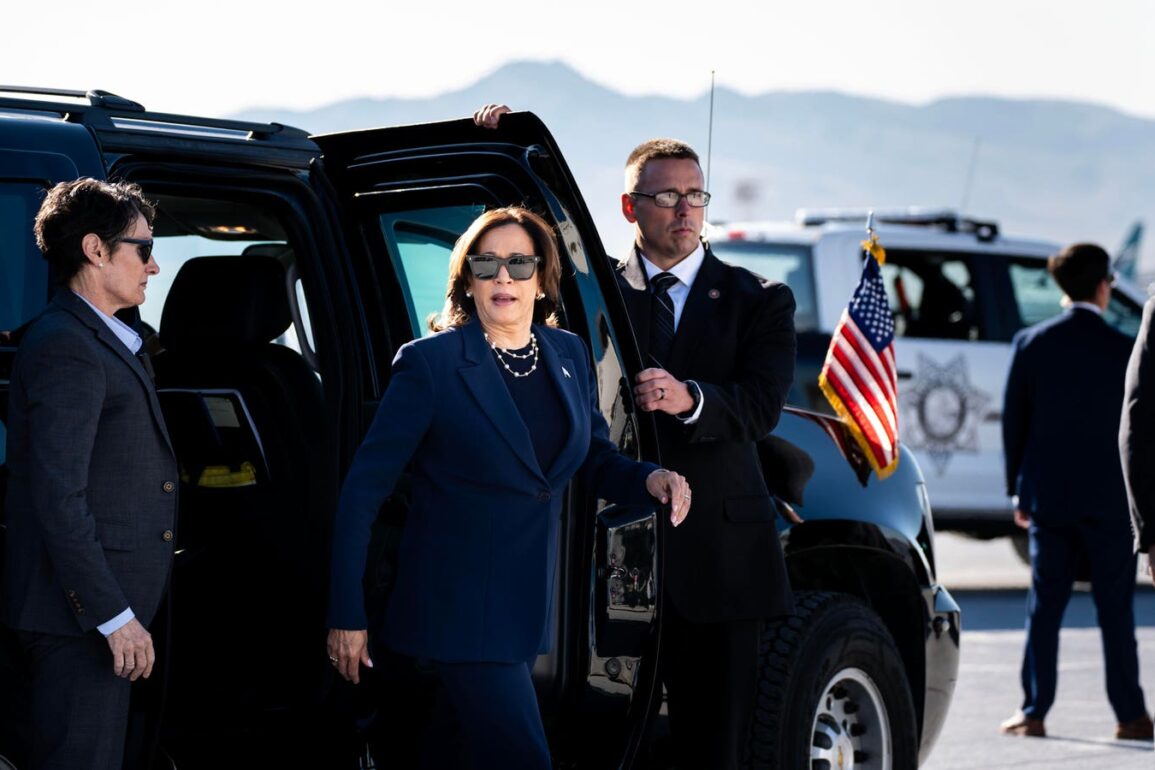
During the third week of October, Vice President Kamala Harris sat down with Roland Martin, Justin Carter of The Shade Room and the Breakfast Club’s Charlamagne tha God. While usually part of the larger political discourse in the Black community, Harris’ sit down with these Black men signified the campaign’s more considerable effort to roll out the Opportunity Agenda for Black Men, its robust plan for that demographic.
“I intend to earn the vote of everyone, including Black men,” Harris told The Shade Room on Oct. 15. “My plan is to build an opportunity economy, which means giving people an opportunity to actually achieve their ambition, their goals and their dream.”
Coming just 20 days before the November election, the Opportunity Agenda for Black Men is a nearly 10-page comprehensive plan aiming to address the economic, social, healthcare and housing challenges facing Black men living in the United States. Released at a time when public polls show former President Donald Trump making moderate gains with Black men, Harris’ plan attempts to secure the Democratic Party’s most loyal voting bloc outside of Black women.
Harris’ plan also comes on the heels of a recent decision a handful of corporations — Toyota Motor Corporation, Caterpillar, Inc., Ford Motor Company, Harley-Davidson, John Deere, and Molson Coors —made at the urging of conservative activists to abandon their diversity, equity and inclusion initiatives. Samantha Tweedy, chief executive officer of Black Economic Alliance, said the plan leans into the economic prowess and ingenuity living in America’s Black community.
WIESBADEN, HESSEN – DECEMBER 22: Toyota cars are offered for sale at a car dealership on December … [+]
Over the past couple of years, diversified workplaces and programs that have leveled the playing for Black, brown and LGBTQIA workers have led to increased profits.
According to McKinsey’s latest “Diversity Matters Even More” report, there is a “39% increased likelihood of outperformance for those in the top quartile of ethnic and gender representation versus the bottom quartile.” This statistic has pushed Tweedy and BEA to be bullish in fighting for more significant opportunities for Black men in policy and business.
“This is the right thing to do for the Black community. It is the right thing to do for Black men, and there is an economic imperative for the entire country,”Tweedy said.
As one of the leading forces behind Harris’ nationwide Economic Opportunity Tour, which took place during the first two quarters of 2024, Tweedy and BEA were instrumental in laying the groundwork for the Opportunity Agenda for Black Men.
The plan, which comes from policy positions Harris took on while in the Senate, California Attorney General’s office, and during her stint as San Francisco district attorney, further affirms on Black men’s unique role in the U.S. economy.
Some of the policies proposed include:
- A million forgivable loans up to $20,000 to Black entrepreneurs who lack the resources, connections, or access to capital to execute good ideas.
- The launch of a National Health Equity Initiative focused on addressing health challenges such as sickle cell disease, diabetes, prostate cancer, and mental illness that disproportionately affect African-American men.
- Championing education, training, mentoring and apprenticeship programs that assist Black men in getting well-paying jobs in high-demand industries, including public education.
- Legalizing recreational marijuana and creating opportunities for Black Americans to succeed in this new industry.
- Supporting a regulatory framework for cryptocurrency and other digital assets to protect Black men who invest in and own these assets.
These policy proposals build upon economic proposals the Harris-Walz campaign rolled out over the past few weeks, including the expansion of first-time homebuyer credit, earned-income child tax credit and the enhancement of programs for small businesses.
Tweedy gave all proposals the thumbs up.
WASHINGTON, DC – SEPTEMBER 21: CEO of the Black Economic Alliance Samantha Tweedy speaks during the … [+]
“It’s so crucial for folks to realize that when Vice President Harris puts out an agenda like this that is centered in Black men, It’s also beneficial for everybody else, for all Americans, because it is an agenda that grows the economy for all,” Tweedy exclaimed.
Nearly 50 of the U.S.’ top Black business leaders applauded Harris’ Opportunity Agenda’s potential to build generational wealth through housing affordability, the creation of good jobs and investments in American entrepreneurs.
“Elections are about choices and Harris’ vision – of a more inclusive, more equitable economy – could not be more different than the other choice on the ballot this cycle: the destabilizing and potentially economically devastating ideas put forward by former President Trump’s campaign and its allies,” the letter said.
For months, the Trump campaign has worked to make inroads into the Black community and woo Black male voters. Its strategy includes highlighting policy wins, such as the nearly $50 billion in funding for opportunity zones, historic HBCU funding and landmark pre-COVID-19 Black unemployment.
“Any African American or Hispanic, and you know how well I’m doing there, that votes for Kamala, you’ve got to have your head examined,” Trump said at a rally in October.
A recent New York Times/Siena College poll found 70% of Black men likely to vote said they would opt for Harris, while 20% said they would back Trump. The Brookings Institution also said that Trump’s share of Black male voters dropped from 14 percent in 2017 to 12 percent in 2020.
However, with battleground states like Georgia, North Carolina, Michigan and Pennsylvania on the path to 270 for Harris and Trump, the battle for the Black male vote will take both candidates all the way up to Election Day.



